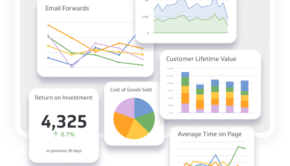Data Security Tips When Working Remotely
Although the concept of remote working has existed for years, recent COVID-19 restrictions have now caused many businesses to rethink their ongoing operations. According to recent statistics, an estimated two-thirds of all adults are more likely to work from home due to the current situation.
Furthermore, this trend is predicted to remain in place to an extent even after the restrictions have been lifted. Unfortunately, remote working can increase the chances of a data breach making effective data security essential. What steps can enterprises and individuals take to better ensure that sensitive information is kept safe? This article examines four actionable recommendations.

Photo by Susanna Marsiglia via Unsplash
1. Secure Cloud Computing Platforms
Cloud storage is one of the most effective ways to categorize, collate and store data for later retrieval. While these virtual systems are obviously beneficial during the current global climate, we need to keep in mind that some systems might not be as secure as others. Furthermore, companies may encounter GDPR issues if less-than-optimal storage solutions are utilised. This is particularly relevant with free cloud-based solutions, as they may not offer robust levels of data protection. Management therefore needs to confirm that all data protection policies are firmly in place to avoid costly data breaches.
2. Including Devices Within a Current Asset Register
It is highly likely that employees will be using different devices (such as smartphones and laptops) to perform work-related tasks. IT Asset Disposition (ITAD) of devices that are no longer in use is therefore extremely important.
When employees use different devices to carry out their role, the risk of failing to adhere to the proper data and IT protocols will rise exponentially. This can be effectively avoided by tagging and adding any third-party devices into the company register. The main intention behind such a strategy is to guarantee that the proper security and compliance measures are always in place.
3. Continually Adhere to all GDPR Guidelines

Photo by Scott Graham via Unsplash
The European General Data Protection Regulation (GDPR) framework is a set of cross-border rules intended to address important issues such as privacy and information distribution. It can be tempting for some companies to flout these regulations under the assumption that they are no longer valid (or that they are somehow more flexible) due to the ongoing COVID-19 crisis. On the contrary, nothing could be further from the truth.
It is critical that companies continue to follow all GDPR guidelines. Much like in the past, data must be stored within a centralised and secure location so that it can be retrieved by authorised personnel in the future. Also, the correct security protocols will need to remain in place to guarantee that it does not accidentally fall into the wrong hands. Some other tenets of the GDPR framework which also need to be acknowledged include:
- Accountability and transparency.
- Minimising the amount of data stored at any given time.
- Deleting such data upon the request of a customer.
- Ensuring that employees are held accountable for any breaches or violations.
Regardless of the current health situation, data breaches need to be taken just as seriously as in the past.
4. Clear the Caches Associated with Personal Assets
When employees return to the workplace, it is important that any previous data that was contained within devices that are no longer being used are sanitised in the appropriate manner.
Management should create a centralised policy intended to clear such information to guarantee that no remnants are present. This is in direct contrast to assuming that employees will take the appropriate steps themselves. If not, the firm in question could fall foul of GDPR regulations and perhaps more importantly, serious data breaches are more likely to occur (such as if a device is lost or stolen in the future).
Proactive Solutions for Challenging Times
The breadth and scope of the Internet has now enabled many companies to continue functioning thanks to remote working. Still, there are a number of responsibilities which need to be addressed so that security protocols remain in place at all times. The recommendations mentioned above should be embraced in a proactive manner to guarantee that privacy and transparency are never called into question.
















